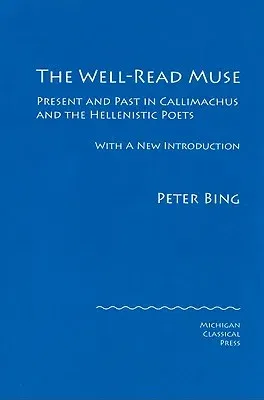"Tradition and originality, the interplay of present and past, are a
concern of poets in
any age. " Peter Bing's seminal monograph, The Well-Read Muse: Present
and Past in Callimachus and the Hellenistic Poets, chases this idea
through the thickets of
Hellenistic poetry and particularly among the lines of Callimachus' Hymn
to Delos .
In this carefully argued and stimulating study, the author investigates
the era in which
the written work - the book - superseded the assumption of oral
composition and
performance. In this and in other respects, as this study demonstrates,
Hellenistic
poets saw themselves as now being part of a new world, remote from the
great genres and achievements of the earlier literary tradition. That
sense of distance from the past
gave authors freedom to experiment. At the same time, it incited them to
view their
poetic heritage as something deserving intense scholarly study. The
author examines one fundamental result of this attitude, the Hellenistic
tendency toward learned allusion, and what this meant to a period
pursuing a different literary approach.
The Well-Read Muse concludes with an analysis of Callimachus' Hymn to
Delos as a paradigmatic instance of the play between present and past,
tradition and originality that typified the age. Here the author sheds
important light on the poet's choice not to make Apollo his theme, as
his models had, but to focus rather on the diminutive, slender island,
through which the god of song was born.
Accompanied by a new Introduction by the author and corrections to the
text and notes, as well as by an extensive bibliography and indices of
passages and subjects discussed, The Well-Read Muse provides an
important understanding of this turning point in Greek poetical
development. There was no escaping the new world of which these poets
were a part: Peter Bing's impressive work examines the ways in which
poets confronted this new reality.

